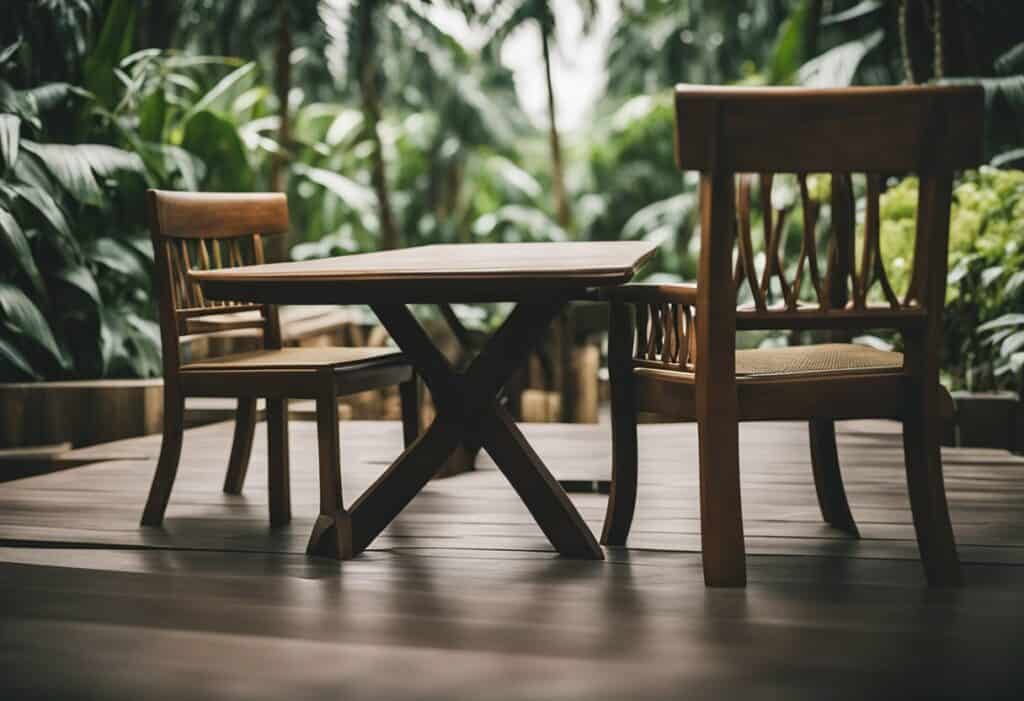Import Furniture from Bali to Singapore: Discover Unique Designs and Affordable Prices
Are you looking to add a touch of Balinese charm to your home decor in Singapore? Importing furniture from Bali to Singapore is a great way to add unique, handcrafted pieces to your space. Bali is known for its skilled artisans who create beautiful furniture using locally sourced materials. In this article, we will explore the process of importing furniture from Bali to Singapore, including the logistics involved and some frequently asked questions.

Understanding the furniture market in Bali is the first step to importing furniture to Singapore. Bali has a rich tradition of furniture making, and there are many skilled artisans who create unique pieces using traditional techniques. The island is also home to a variety of materials, including teak, mahogany, and suar wood, which are commonly used in furniture making. With a wide range of styles and materials to choose from, you are sure to find something that fits your taste and budget.
Logistics of importing furniture to Singapore can be challenging, but with the right planning, it can be done smoothly. You will need to consider factors such as shipping, customs clearance, and delivery to your home. It’s essential to work with a reputable supplier who has experience in exporting furniture to Singapore. By doing so, you can ensure that your furniture arrives on time and in good condition.
Key Takeaways
- Bali is known for its skilled artisans who create unique furniture pieces using locally sourced materials.
- Importing furniture to Singapore requires careful planning and consideration of logistics such as shipping and customs clearance.
- Working with a reputable supplier who has experience in exporting furniture to Singapore is essential for a smooth and successful import process.
Understanding the Furniture Market in Bali

If you’re looking to import furniture from Bali to Singapore, it’s important to understand the furniture market in Bali. Bali is known for its exquisite craftsmanship and use of sustainable, natural materials. From teak and bamboo to rattan and copper, Balinese artisans create one-of-a-kind products that add charm and character to any interior design.
The Artistry of Balinese Craftsmanship
Balinese furniture is renowned for its quality craftsmanship and attention to detail. Balinese artisans use traditional techniques passed down from generation to generation to create bespoke furniture pieces that are both functional and beautiful. Whether you’re looking for a lounge chair, side table, stool, or dining chair, Balinese artisans can create artisanal furniture that is unique and one-of-a-kind.
Sourcing Sustainable Materials
In Bali, sustainable and natural materials are used to create furniture that is both beautiful and environmentally friendly. Teak wood is a popular material used for outdoor furniture due to its durability and resistance to weather. Natural rattan is another popular material used for furniture, particularly for chairs and tables. Bamboo is also used for furniture and decoration due to its texture and natural charm. Copper is used for tableware and lighting, adding a touch of elegance to any dining room or bedroom.
When sourcing materials, Balinese artisans prioritize ethical and sustainable practices. They work with local suppliers to ensure that the materials used are of the highest quality and sourced in an environmentally responsible way. This commitment to sustainability is reflected in the quality of the finished products and adds to their overall value.
In summary, importing furniture from Bali to Singapore offers a unique opportunity to add charm and character to your interior design. Balinese furniture is renowned for its quality craftsmanship and use of sustainable, natural materials. From bespoke beds and lamps to mirrors and lanterns, Balinese artisans create one-of-a-kind products that are sure to impress.
Logistics of Importing Furniture to Singapore

Importing furniture from Bali to Singapore requires careful planning and execution. The process can be complex and time-consuming, but with the right approach, it can be a rewarding investment for homeowners, interior designers, and island resorts.
Selecting the Right Freight Forwarder
The first step in the logistics of importing furniture to Singapore is to select the right freight forwarder. A reliable and experienced freight forwarder can help you navigate the complex process of customs clearance, documentation, and transportation. You can find a list of reputable freight forwarders in Bali through online directories or by asking for recommendations from other importers.
When selecting a freight forwarder, consider the following factors:
- Experience in handling furniture shipments
- Knowledge of customs regulations and import requirements in Singapore
- Availability of storage and warehousing facilities
- Access to a network of reliable carriers and cargo companies
- Competitive pricing and transparent shipping costs
Navigating Customs and Import Regulations
Importing furniture to Singapore requires compliance with a range of customs and import regulations. You will need to obtain the necessary permits and documentation, such as a Bill of Lading, Packing List, and Commercial Invoice. You may also need to arrange for fumigation and other treatments to comply with Singapore’s biosecurity requirements.
To ensure smooth customs clearance, consider working with a customs broker who can assist you with the following:
- Preparation of import documentation and permits
- Compliance with Singapore’s import regulations and taxes
- Coordination with freight forwarders and carriers
- Payment of customs duties and taxes
Calculating Costs and Managing Shipments
Importing furniture to Singapore involves a range of costs, including shipping costs, customs duties, and taxes. You will need to calculate these costs accurately to avoid unexpected expenses and delays.
To manage your shipments effectively, consider the following tips:
- Use a freight calculator to estimate shipping costs based on the weight, volume, and destination of your furniture
- Choose between Full Container Load (FCL) and Less than Container Load (LCL) shipping based on your cargo volume and budget
- Consider the storage and warehousing costs associated with your shipment
- Plan for any additional costs, such as fumigation, insurance, and handling fees
Importing furniture from Bali to Singapore can be a challenging but rewarding investment. With the right logistics and planning, you can enjoy high-quality custom furniture at competitive prices.
Frequently Asked Questions

What’s the cost of shipping furniture from Bali to Singapore?
The cost of shipping furniture from Bali to Singapore depends on various factors such as the size and weight of the furniture, the shipping method, and the destination. Generally, air freight is more expensive than sea freight, but it is faster. You can expect to pay around SGD 500 to SGD 2000 for air freight and SGD 200 to SGD 500 for sea freight. However, these are just rough estimates, and the actual cost may vary based on your specific requirements.
How can one import furniture from Bali to Singapore online?
Importing furniture from Bali to Singapore online is easy. You can browse the websites of various Balinese furniture suppliers and select the products you want to import. Once you have made your selection, you can contact the supplier to discuss the shipping options and costs. You can also use the services of a freight forwarder who can handle the entire process for you, from sourcing the furniture to delivering it to your doorstep in Singapore.
What are the customs regulations for importing furniture from Bali into Singapore?
All goods imported into Singapore are regulated under the Customs Act and the Regulation of Imports and Exports Act. Furniture imported from Bali into Singapore is subject to Goods and Services Tax (GST) and/or duty payment. You need to obtain a customs permit to account for the import and tax payment of the goods. Dutiable goods, which incur both GST and duty, are subject to higher taxes. It is recommended that you consult with a customs broker or freight forwarder to ensure compliance with all regulations.
Are there any reliable freight forwarders for transporting furniture from Bali to Singapore?
Yes, there are many reliable freight forwarders that specialise in transporting furniture from Bali to Singapore. Some of the well-known freight forwarders include DHL, FedEx, and UPS. You can also use the services of local freight forwarders in Bali who have experience in handling furniture shipments to Singapore.
What’s the estimated delivery time for furniture shipped from Bali to Singapore?
The estimated delivery time for furniture shipped from Bali to Singapore depends on the shipping method you choose. Air freight is faster and usually takes around 3 to 7 days, while sea freight is slower and can take up to 4 weeks. However, these are just estimates, and the actual delivery time may vary based on factors such as customs clearance, weather conditions, and other unforeseen circumstances.
Can you recommend some wholesale furniture suppliers in Bali for Singaporean importers?
Yes, there are many wholesale furniture suppliers in Bali that cater to Singaporean importers. Some of the popular ones include InBali, Bali Wood Slab, and Bali Republic. However, it is recommended that you conduct your own research and due diligence before selecting a supplier to ensure that they meet your specific requirements and quality standards.



